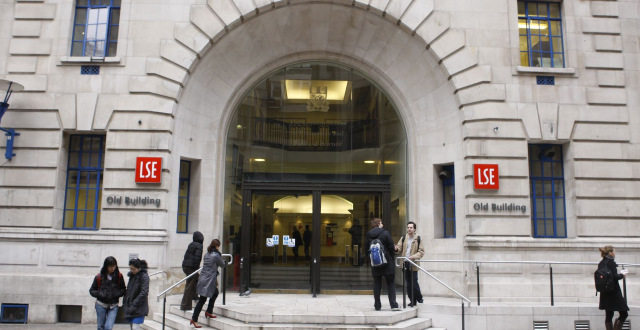The London School of Economics and Political Science (LSE) is so much more than just studying at one of the top universities worldwide; it has given me the transferable skills, knowledge, and network to help me excel beyond university.
1. First-class education
LSE is one of the world’s top universities for social sciences. The high-quality education gives you the chance to learn from some of the leading academics in their field. Whilst at times, I must admit the vigour of academics has challenged me, it has also helped me reach a potential I never even knew I had!
In addition, one of the highlights of studying at LSE is being able to learn from the latest research. Through studying at LSE, you will have the fortune to learn from academics participating in “real world” matters such as policymaking. As a result, you will be able to engage with contemporary concerns and their solutions, giving you the most up-to-date knowledge that can be applied beyond university.
Additionally, LSE gives you the opportunity to learn skills that go way beyond a 2-dimensional set curriculum. Learning and teaching at LSE are shaped to provide students with a tool set of skills to set you up to excel in the future. Critical thinking, research, and public speaking are just some of the skills I have already been able to develop through studying at LSE. If you choose to, you can furthermore grow your capabilities with the help of LSE LIFE. LSE LIFE is a student-oriented service that provides a myriad of resources and workshops to enable you to grow your academic, occupational, and interpersonal expertise for free! Additionally, LSE LIFE provides one-on-one support, providing unique skill-related advice to any queries or help you need with academic, personal or career-related matters.
2. Unique degree course
LSE’s unique focus on the social sciences provides a distinct perspective on academic matters, which many other UK universities simply do not offer.
Moreover, many LSE courses offer the opportunity to choose modules beyond your course content. Consequently, you will be able to tailor your degree to your specific interests to gain the skills and knowledge you value most. Some degree programmes, such as BA Geography, even give you the chance to add a language specialism to your degree. This is particularly useful if you are considering working internationally in the future or to help you make the most of one of the study abroad schemes that LSE offers.
3. Expand your intellectual curiosity
Whilst you may assume that learning might be confined to the outlines of your degree, it can go way beyond the classroom syllabus. LSE regularly hosts public speaker events from inspirational speakers, facilitating you to expand your intellectual curiosity in matters you may have never previously considered.
4. Lifelong connections
LSE’s tight-knit community will not only provide you with lifelong friends but also a platform to collaborate and learn from peers from all over the world. Being a part of such a diverse, global community provides you with the means to broaden your perspectives far beyond London and the UK.
Furthermore, LSE gives you vast networking opportunities, which enables you to build a strong base of connections for your future career One of the events that I have found most useful at LSE are the career and sector insights hosted by LSE alumni. They have given me the opportunity to discover the range of different potential career paths that my degree has to offer.
5. Heart of London
Penultimately, it is needless to say, that studying at LSE will give you the privilege of living in the heart of London and all of its opportunities. It’s fair to say it’s quite hard to be bored with endless events and opportunities going on in London, from West End shows to food markets the list of things to do simply never ends.






Hello.
I am in my first year of university at brunel.would it be possible to transfer into LSE for my second year?
Hi, Syed, thank you for your interest in the London School of Economics. Please get in touch with the student recruitment team at lse.ac.uk/ask-LSE and they’ll provide you with answers to your questions.